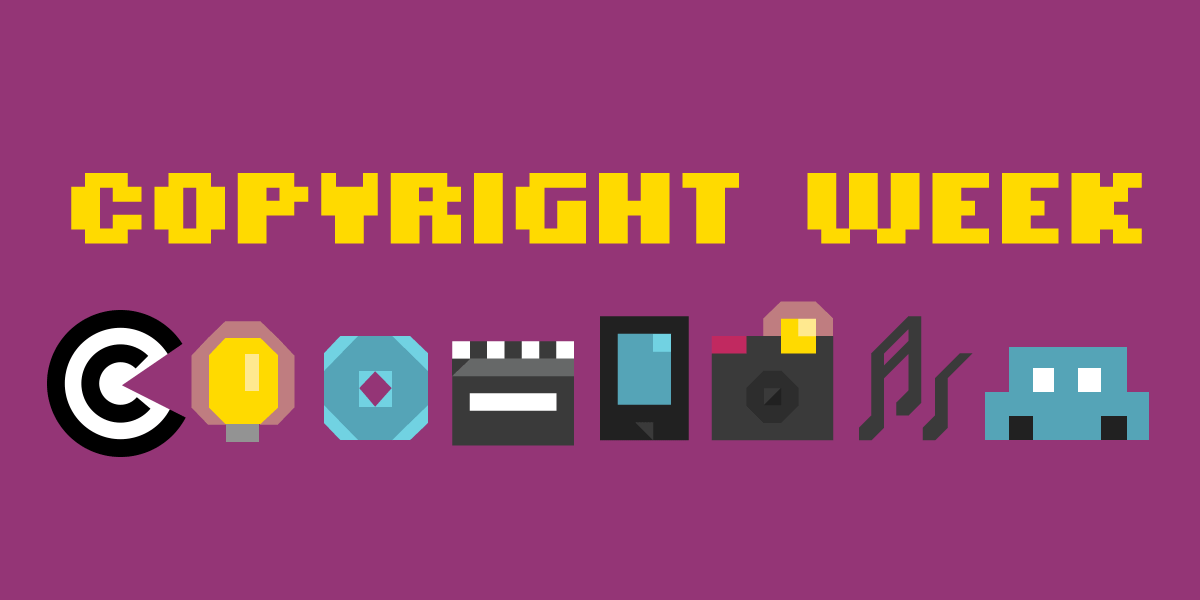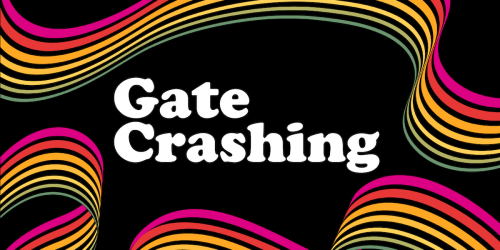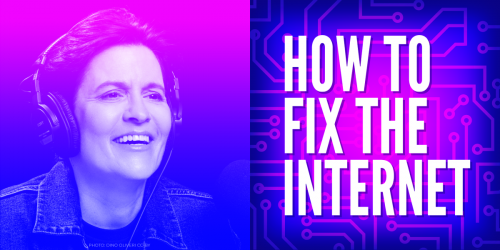We're taking part in Copyright Week, a series of actions and discussions supporting key principles that should guide copyright policy. Every day this week, various groups are taking on different elements of copyright law and policy, addressing what's at stake and what we need to do to make sure that copyright promotes creativity and innovation.
While culture is shared, copyright law has increasingly been used to lock people out of participating in it. Although copyright law is often treated as the exclusive domain of major media and entertainment industries, it actually should be serving all of us. Because, of course, it affects all of us.
Eight years ago, a diverse coalition of Internet users, non-profit groups, and Internet companies defeated the Stop Online Piracy Act (SOPA) and the PROTECT IP Act (PIPA), bills that would have forced Internet companies to blacklist and block websites accused of hosting copyright-infringing content. These were bills that would have made censorship very easy, all in the name of copyright protection.
SOPA and PIPA have their successors. Between the Copyright Directive in the EU (previously known as Article 13, now as Article 17) and endlessly frustrating iterations of the CASE Act, there’s a push to “fix” copyright law in ways that cause harm for regular people and smaller creators, while shoring up the power of the huge entertainment companies and big tech. And that’s not to mention laws like Section 1201 of the Digital Millennium Copyright Act, which makes it difficult and expensive to tinker with or repair devices you, in theory, have bought and “own.”
But we know this play, and we know that you will stand against it the way we all did eight years ago.
We continue to fight for a version of copyright that does what it is supposed to. And so, every year, EFF and a number of diverse organizations participate in Copyright Week. Each year, we pick five copyright issues to highlight and advocate a set of principles of copyright law. This year’s issues are:
- Monday: Fair Use and Creativity
Copyright policy should encourage creativity, not hamper it. Fair use makes it possible for us to comment, criticize, and rework our common culture. - Tuesday: Copyright and Competition
Copyright should not be used to control knowledge, creativity, or the ability to tinker with or repair your own devices. Copyright should encourage more people to share, make, or repair things, rather than concentrate that power in only a few players. - Wednesday: Remedies
Copyright claims should not raise the specter of huge, unpredictable judgments that discourage important uses of creative work. Copyright should have balanced remedies that also provide a real path for deterring bad-faith claims. - Thursday: The Public Domain
The public domain is our cultural commons and a crucial resource for innovation and access to knowledge. Copyright should strive to promote, and not diminish, a robust, accessible public domain. - Friday: Copyright and Democracy
Copyright must be set through a participatory, democratic, and transparent process. It should not be decided through back-room deals, secret international agreements, unaccountable bureaucracies, or unilateral attempts to apply national laws extraterritorially.
Every day this week, we’ll be sharing links to blog posts and actions on these topics at https://www.eff.org/copyrightweek and at #CopyrightWeek on Twitter.
As we said last year, and the year before that, if you too stand behind these principles, please join us by supporting them, sharing them, and telling your lawmakers you want to see copyright law reflect them.











